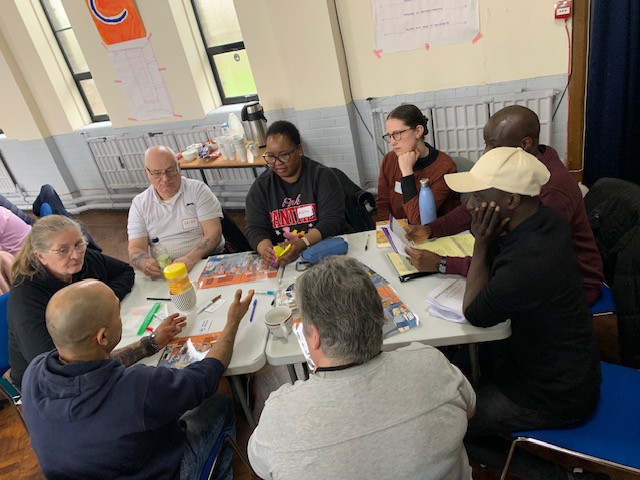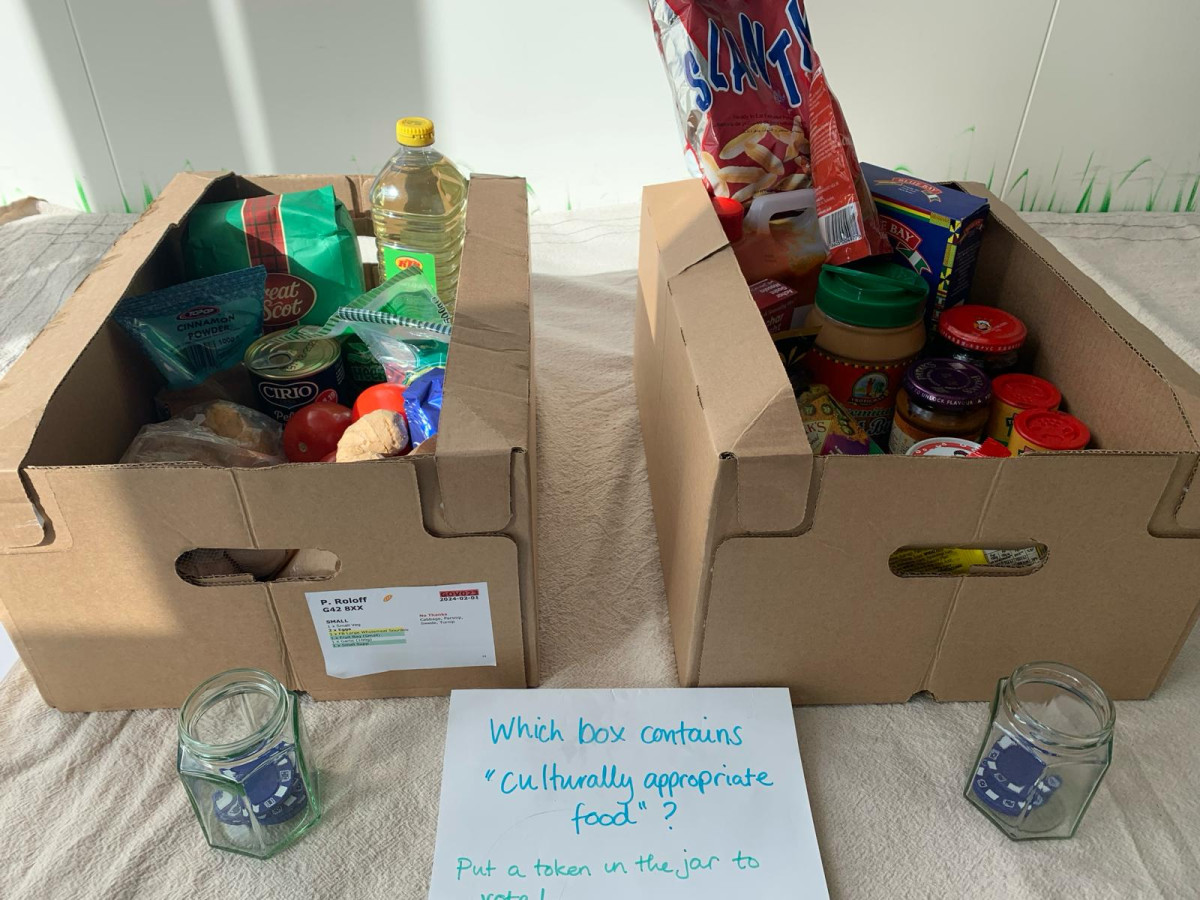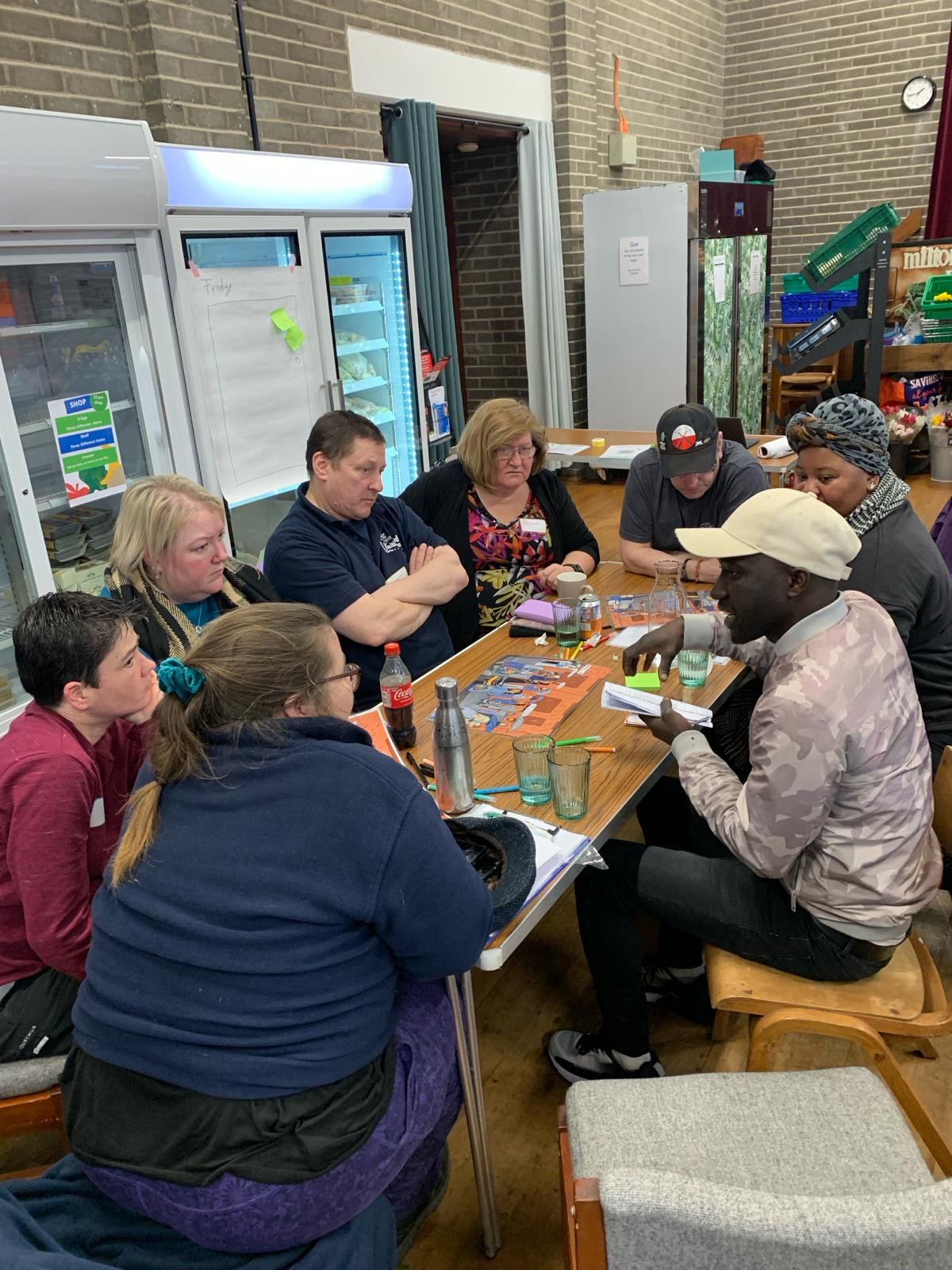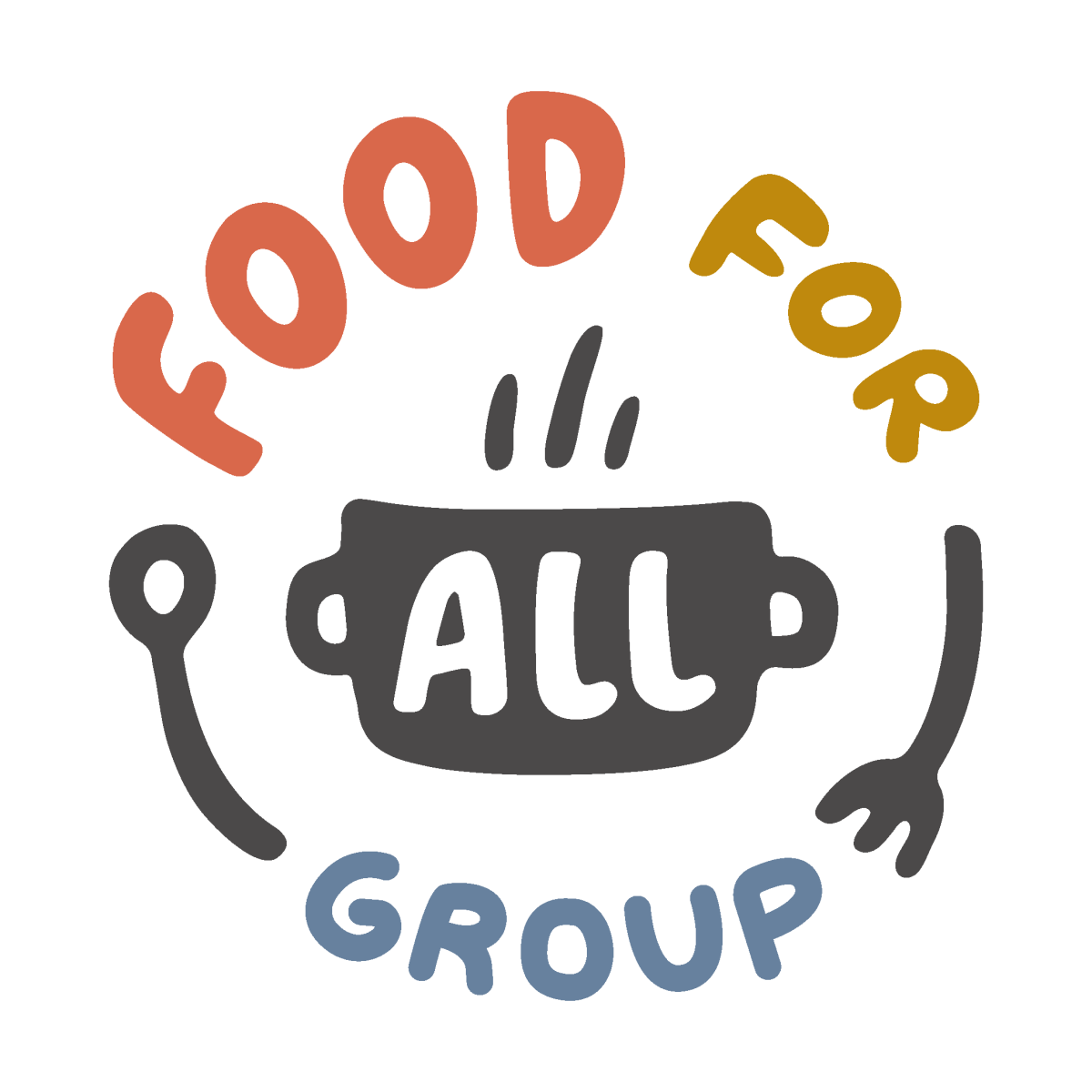
Food For All Group working
Author: Fi Halliday, Project Officer
FInd out more: https://www.govancommunityproject.org.uk/
The Food For All Group is supported by Govan Community Project, with funding from the Scottish Government. The group started in 2020 with a community research project exploring the experience of food insecurity for asylum seekers in Glasgow. Over the past year of the Food For All Project, the group has developed several Culturally Valued Food resources for community food providers. The group currently distributes these resources to attendees of their Dignity In Practice: Navigating the Asylum Maze workshop that they facilitate.
The two Culturally Valued Food resources: namely our ‘Culturally Valued Food Guide’ and ‘Religious Dietary Requirements Guide’, were co-produced through a participatory action approach. This involved a five step process whereby the group members first identified the current gaps in community food resources and conducted a ‘competitor analysis’ to familiarise themselves with pre-existing materials. Following this, the group then reflected on their own experiences of using community food services and shared best practice examples of how dignity can be enhanced by staff and volunteers. This part of the process included collating the experience within the group of different religious dietary practices and conducting research for religions we weren’t as familiar with. Once we had collected the expertise from the group, we then started formatting our experiences into a 2 page document in the form of ‘best practice’ examples and ‘key guidance for community food providers’ so that it was easy to read. We also enlisted the support of a graphic designer and illustrator to bring our resource to life and make it eye catching for its intended audience.

Which box contains 'culturally appropriate food'?
Through developing the Culturally Valued Food Resource, the Food For All Group members have been sharing stories and experiences with each other about how they feel their dignity is either challenged or enhanced in various community food settings. By sharing their experiences with each other in a space that centres the voices of those in the asylum process, the group members have expressed feeling valued and able to contribute. This co-production process underpins the ethos and strength of the Food For All Group, as expressed by one group member below:
“This project is so important to me , I learned so much from the project, it has given me the opportunity to hear other group members stories, and It has also given me the opportunity to share my experiences and my own stories which I felt like a safe space to do. This project will be meaningful to so many people in different communities, especially those in the asylum process”
As evidenced in the feedback from the group member, having the Food For All weekly meeting space to share life experiences with other group members in a similar position results in a strong sense of belonging to a community. Through actively listening to and sharing experiences with others, this cultivates an intrinsic feeling of being valued, as each group member’s active participation is vital to creating a safe and nurturing environment for others. The group would not function without each members skills in listening, sharing and supporting each other. By stepping into these roles for each other, group members are enhancing the dignity of each other.

Running a workshop with Royston Community Hub
Throughout the creation of the ‘Culturally Valued Food’ resource and the ‘Religious Dietary Guide’, group members expressed differing opinions and spoke from a range of different cultures and perspectives. In order to structure the discussion and decision making within the resource production, an additional working group was established to enable group members to express views and ideas that would shape the final resource. This working group met weekly for 6 weeks and created a space for all opinions about the resource to be heard and reflected on.
One group member expressed the value of hearing everyone’s opinions as a part of a decision making process and working with different leadership styles within a group:
“We all embody different leadership styles at different times. We all need to be able to step into different roles in order to make decisions. I identify with being a relationship based thinker and someone who likes to lead from the back. I prefer to hear everyone's opinions and let everyone speak before a decision is made. I also like to hear what the aims are and to think about the future”
The Food For All Group is strong because there are diverse opinions within it. The group members demonstrate a commitment to listening and acting with empathy for others, thereby enhancing the dignity of their fellow group members.
The biggest challenge with implementing the Dignity Principles is working with other people who are perhaps hearing about them for the first time or aren’t so used to prioritising dignity through their work. This can present a small challenge, however not one that can’t be overcome with conversation, education and leading by example.
“Be confident to ask people questions and get to know them and how their dignity could be enhanced. If you don’t speak the same language then find someone to interpret.” – Fi Halliday

Food For All Group Logo